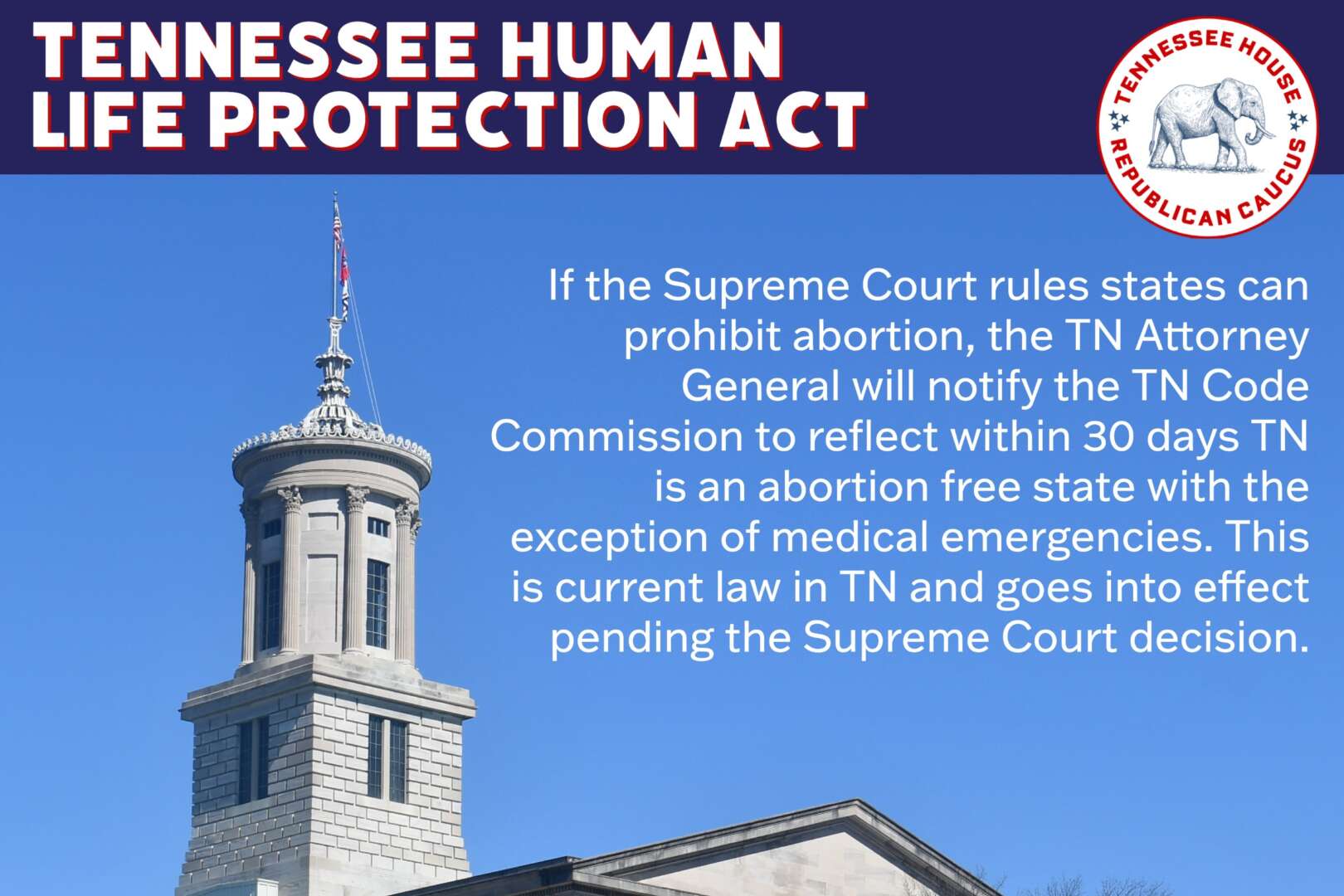Tennessee has the Human Life Protection Act or the “trigger bill”. This bill prohibits abortions in this state, with the exception of medical emergencies as discussed below, effective on the 30th day after the earlier of:
- a judgment by the U.S. Supreme Court such that a prohibition on abortion by the states would be permissible;
- or adoption of an amendment to the U.S. Constitution that restores to the states the authority to prohibit abortion.
The attorney general must notify the Tennessee Code Commission of the occurrence of either of the two triggering events described above, and what the 30th day following such occurrence is, for purposes of identifying the effective date of this bill.
Under this bill, it will be a Class C felony for a person to perform or attempt to perform an abortion. This bill will not subject the pregnant woman upon whom an abortion is performed or attempted to criminal conviction or penalty.
It will be an affirmative defense to prosecution under this bill that:
(1) The abortion was performed or attempted by a licensed physician;
(2) The physician determined, in the physician’s good faith medical judgment, based upon the facts known to the physician at the time, that the abortion was necessary to prevent the death of the pregnant woman or to prevent serious risk of substantial and irreversible impairment of a major bodily function of the pregnant woman. No abortion will be deemed authorized under this provision if performed on the basis of a claim or a diagnosis that the woman will engage in conduct that would result in her death or substantial and irreversible impairment of a major bodily function or for any reason relating to her mental health; and
(3) The physician performs or attempts to perform the abortion in the manner which, in the physician’s good faith medical judgment, based upon the facts known to the physician at the time, provides the best opportunity for the unborn child to survive, unless in the physician’s good faith medical judgment, termination of the pregnancy in that manner would pose a greater risk of the death of the pregnant woman or substantial and irreversible impairment of a major bodily function. No such greater risk will be deemed to exist if it is based on a claim or diagnosis that the woman will engage in conduct that would result in her death or substantial and irreversible impairment of a major bodily function or for any reason relating to her mental health.



